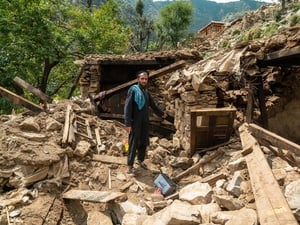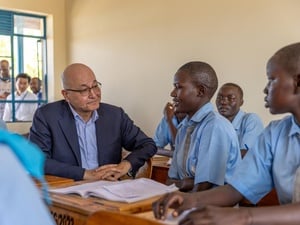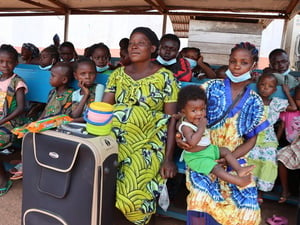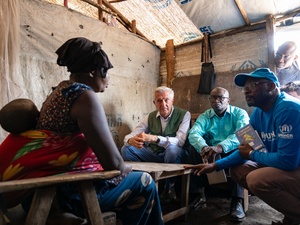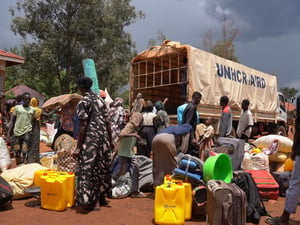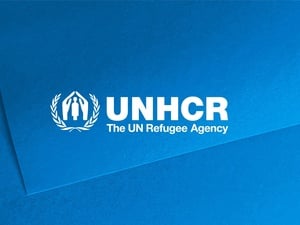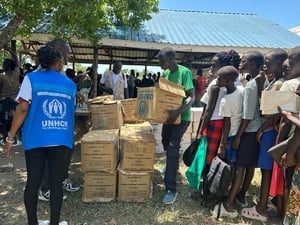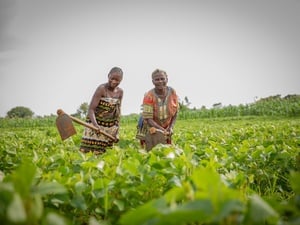More than 25,000 refugees return from Republic of Congo since May
More than 25,000 refugees return from Republic of Congo since May
UNHCR has helped more than 25,000 Congolese return to their homes in northern Democratic Republic of the Congo (DRC) from neighbouring Republic of Congo under a voluntary repatriation programme that was launched in May.
The 25,000 mark was passed last Friday (the current total of those helped back by UNHCR is 25,696). UNHCR hopes to repatriate a further 24,000 more refugees, mostly from Equateur province, across the Oubangui River to the DRC by the end of this year, plus a further 32,000 next year.
Currently, there are more than 100,000 Congolese refugees still in Republic of Congo. They have been living in isolated areas along the river since fleeing ethnic clashes in Equateur province in 2009.
At the height of the crisis, about 143,000 Congolese fled their villages for safety in neighbouring countries - 123,000 in Republic of Congo and 20,000 in the Central African Republic - when clashes erupted between the Munzaya and Enyele groups over traditional fishing and farming rights.
An additional 100,000 Congolese were displaced inside Equateur province but most returned home when conditions improved. A few thousand refugees also returned on their own from the Republic of Congo and from Central African Republic.
UNHCR has picked up the pace of returns since July, adding a second weekly convoy to take people across the river and home. Returnees tell UNHCR staff that they believe the security situation has improved while parents say they want to go back to enroll their young children in primary schools.
In addition to an aid package provided to each family on arrival, UNHCR and other humanitarian organizations have initiated reintegration activities, especially in the Libenge and Kungu territories, to help ensure a sustainable return. So far, and with a limited budget, UNHCR and its partners have distributed 700 shelter kits for spontaneous returnees and have also built 350 shelters and 12 wells for the most vulnerable households as well as primary schools. Awareness campaigns aimed at ensuring peaceful co-existence between the various communities have been undertaken.
Equateur is one of the most remote provinces in the country, lacking basic socio-economic structures and infrastructure. UNHCR has appealed for development actors to help strengthen the reintegration activities.
For further information on this topic, please contact:
- In Kinshasa: Simplice Kpandji on mobile +243 81 833 1322
- In Geneva: Leo Dobbs on mobile: +41 79 883 6347


